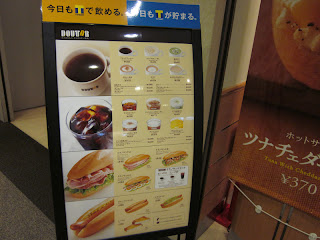I have been doing more thinking. OK, so what's new?
In recent weeks, the stock markets rallied and with the strong closing on Wall Street last night, they look like they could move even higher next week.
The bulls say that the tide has turned and things are moving higher from here and that we should buy stocks on pull backs. The bears say that what we have seen recently is just a bear market rally from oversold positions and that stock markets will see new lows in time.
Both bulls and bears are looking into their crystal balls and coming up with reasons why they are going to be right. My own crystal ball is cloudy and I doubt it works at all.
However, drawing from what I have read in the news, it seems like the eurozone crisis is far from over. Banks in the eurozone are still trying to shore up their capital requirements and being significant lenders in Asia, accounting for some 20% of commercial loans here, negative ramifications could manifest themselves more remarkably in time. Being asked to write off huge chunks of Greek debt has made a difficult situation worse. Now, they are worried about Portugal.
(1993-2011).png) |
| Long-term interest rates of Euro countries, 1993-2011 |
The eurozone's unemployment rate has hit a new high and in Spain alone, unemployment stands at more than 22%. Recessionary pressure in Europe has already affected Asia as export volumes in China shrank. Smaller companies are experiencing problems with cashflow and a lack of credit. Countries here are all forecasting lower growth in 2012 with a possibility of even negative growth if the eurozone crisis should escalate.
Apparently, the ECB has been providing very low interest rate loans to eurozone banks in recent months. Instead of lending to businesses and individuals, however, the eurozone banks are parking the money in government bonds with higher interest rates. They would have to think twice about such a strategy. If they could be arm twisted into accepting a Greek debt haircut, it could happen with Portugal or even Spain and Italy, couldn't it?
The eurozone is a mess but it is an important part of the global economy. As a bloc, it is the largest trading partner for many countries here in Asia. Its problems are not its own as they will overspill and take on new forms in Asia.
Already, shipping firms are not going to do well due to excess capacity, anaemic demand and higher operating costs. I just learned that the anticipated pick up in demand from China after the holidays did not materialise and this is a cause for worry. Firms which are heavily leveraged could even go into bankruptcy if credit dries up.

Property developers are not going to do well due to government intervention in efforts to subdue runaway prices. This has both social and political considerations as well, of course. In China, the government has expressed its desire to keep measures in place as it feels that home prices should fall another 30% or so. Many investors in various guises will feel the pain and some might even die from it.
Banks have been under pressure as the very low interest rate environment affects their earnings while deteriorating macro economics could see a slow down in demand for banking services in their various forms. Already, investment banking has seen massive retrenchment exercises and it does not look like it is going to stop.
Fundamentally, I find it hard to be optimistic about 2012. Technically, I feel that the stock market could see a test of its lows once more before moving higher. I know I am sticking my neck out and putting it on a chopping block here but it is just how I feel right now.
In case you are wondering, I still believe in being pragmatic and not being bearish or bullish. Hence, although I have been divesting as the stock market rallied, I remain more than 50% invested. Yes, I still believe that 50% is a good number in such uncertain times.
People who have exited the market and are 100% in cash will see their wealth being eroded in time by higher inflation. The longer it drags on, the more detrimental it is going to be. As a prominent banker once said, it is very expensive to be in cash these days.
People who are almost fully invested in the market are shouldering a heavy risk premium too. If things should take an abrupt and powerful turn for the worse, they could lose much of their wealth in a very short time. They would also lack the resources to buy stocks on the cheap.

In the weeks prior to the current market rally, I accumulated various stocks at lower prices including the purchase of LMIR nil paid rights. As prices rose, I divested either wholely or partially to lock in gains.
As prices rose higher, I even cut some losses on some badly timed purchases months ago. As you can imagine, I have been recovering quite a bit of money from the stock market.
So, do I think this is a time to sell and not to buy? Nothing like that. I simply think it is a time to go back to being 50% invested. Since I was more than 70% invested after all the buying I did in the weeks leading to the current market rally, the thing for me to do was to sell. I might sell more next week if prices go higher.
On hindsight, which is always perfect, I started selling a bit too soon. Quite a few counters saw higher prices after I sold at what I thought were strong resistance levels. Do I chase and buy back? Nope. Why?
Buying as prices go higher is similar to selling as prices go lower. I don't do it. I buy at supports and sell at resistance. It is not a perfect strategy, surely, as supports and resistance could give way. However, going against this strategy has proven more damaging than beneficial most of the time. This is true for me, at least.
Now, with my war chest fuller, what do I intend to do? As usual, look ahead and wait for opportunities to buy again at supports. Patience is a virtue and mostly a rewarding one too.
Related posts:
Refer to right sidebar and look for the heading "Stock Market Strategies".









































(1993-2011).png)












